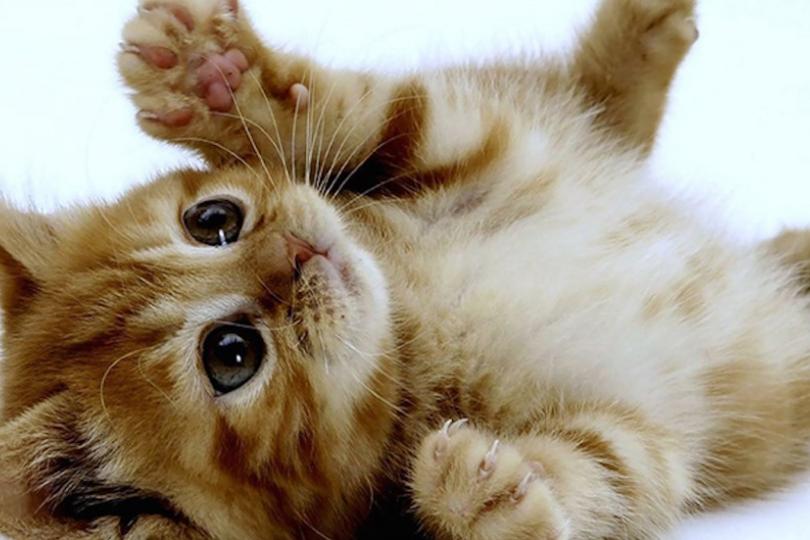Day 4 -- Fringe Recap

When it comes to theater, there's definitely some politics involved in what I choose to spend money or time on. "Do I know someone in the show? Will I feel guilty the next time I see them and I didn't make an effort to see their show?" "Does this person make good work or mediocre work? Will I be annoyed I spent an hour and a Gold Pass on it?" "Do I feel obligated to show up because the creator is a person of color?" Minnesota Nice has a dark sister and it's called Minnesota Guilt: doing things you don't enjoy because it's the polite, community-oriented thing to do.
Blech.
In veering so far into supporting one another's everything without the critical dialogue with the artist of why it did or didn't work, we've lost our appetite for work with strong - and possibly - unpleasant flavor. Everything tastes vaguely the same, so why indulge?
Lately, I haven't seen as much theater as I used to. I see the fleeting disappointment flash across someone's face when I say, "No, I didn't see that," and in that glance there's also - maybe - a panic. The panic of "Maybe if the people who *work* in theater aren't supporting it, theater *is*, in fact, dying. Maybe the work is no good. Maybe I'm terrible and everyone's too polite to say it."
That's why Fringe is a beautiful beast. Artists get a financially low-risk way to find out if audiences want to see what they do, and they get Regular Jane telling them what she thought. It's one of the few times there's consistent dialogue between artist and audience (though it could be said, again, that most people don't write reviews unless they have something "nice" to say).
This year, I want to see more of the community than my personal theater circle. I want to be in the audience watching when these artists that I (mostly) don't know discover whether they have a hit or a flop or something in between. I also want the danger of pulling up to the table as an audience member and not knowing what this artistic meal will taste like. My gut tells me it looks tasty, but will it deliver savory or foul or indescribable-and-strong-with-a-hint-of-decay-but-not-altogether-unpleasant?
That said, for Show #1, I chose the mystery meat:
Cancer. Rape. Theatre. Loophole.
Theatre Garage
1:00 pm
I came to this show on guard because of the title and show description:
"Unable to speak, dying of lung cancer, and while my mother was taking her last breaths I admitted to her that I had sexually assaulted two women. I'm sick. Depressed. In need of help. This is a true story."
From the description, the show could be a horrifying train wreck, a compelling and disgusting hourlong confession, or a mediocre bore in which the creator attempted to force sympathy from an audience suckered in by a provocative title and description.
After sitting with what I witnessed, I have to admit that it works. If the creator's intent is to create extreme cognitive dissonance, to challenge the audience, to force us to confront our choice - buying into the experience of listening to a disturbing confession and doing absolutely nothing about it - this show works.
And I'm pissed that it works, because I walked out the door feeling like an asshole and annoyed with the creator for making me feel like an asshole. Having borne witness to this piece, I'm an asshole if it's a true story, and I'm an asshole if it's not true.
And what do I do with that? To do nothing after that experience is still a choice, and it's an uncomfortable one.
(My vagueness is for the benefit of those who'll choose to see the last show. You're already forming a point of view and an opinion by reading this, and that can't be helped, but I want to keep this experience as Prime Directive-friendly as I can, even though it was wildly uncomfortable.)
Even now - hours later - I sit here, deciding to believe that the story is fiction, remarking on the artistry of the solo performer: eliciting sympathy from me at the same time that I question why the heck I'm feeling sympathy for a character (a person?) who admitted to sexual assault. (Is it because he's white and white men get sympathy even for horrific acts? is it because I want to believe that it's true so that I'll have a story to tell?) I want to curse this man out for making me an accomplice and exposing my hypocrisy. There's still a smidgen of doubt: "What if it is true?"
Maybe I'm making too much of it, but man, this one is still sticking with me, which makes it an artistic success, if a costly one: I'm not sure I'd want to shake this man's hand if I ran into him on the street.
Show #2
Total Eclipse of the Heart
Illusion Theater
4:00 pm
I wish I could say that this show gave me as much to chew on as the first, but this was a letdown. I'd really enjoyed Peanut Butter Factory's Joe Dowling's Romeo & Juliet on the Moon a few years back, and this piece - while a different animal - didn't strike as strong a chord.
There was no program for this one (only one of my shows gave out a program, which I promptly didn't read, so maybe Shows 1 - 3 had the right idea) and no reiteration of the show description (which, when I read it again later, didn't add to my understanding of the piece), so I started the show without those traditional bearings, and I don't know that I ever found my footing.
The conceit seemed to be that the audience was dropped into the middle of a long-running soap opera, which is - as anyone who's tried to watch someone else's "stories" knows - a disorienting experience. TV soaps were very good at getting new viewers to care what happened to the characters quickly, though; and sometimes you'd get plot explanations from a friend who'd been watching for years. Maybe that's what this show needed: an advocate for the audience, someone to help us care. I wanted to be on the performers' side, to understand and empathize, but the characters weren't the quickly and clearly drawn archetypes needed to jump into the middle of a story and hit the ground running (Marika Proctor's Cecilia was an exception). I wasn't sure what they were after, and even as I write, I'm still not sure.
Of course, I don't expect to know everything immediately when the show begins, and maybe the creators/performers of this piece didn't care to focus on making a tight, linear story so much as exploding the interactions of one short day and injecting the exaggerated physicality of clowning into the more naturalistic moments. If that's the focus, then maybe the argument is that it didn't go far enough.
(I'm always a fan of getting weirder. Theater itself is such a strange/desirable thing: some people telling other people stories about other people. That's a perfect excuse for getting weird, and the audience - the ones who have to go home and not be weird - want it. We want to go deeper than everyday life. We want transcendence. Why bother, otherwise?)
The hinges of this one didn't hang together for me, but there's a silver lining: "Total Eclipse of the Heart" - the song - is, indeed, epic enough to listen to on repeat.
Show #3
The Famous Haydell Sisters Comeback Tour
Nomad World Pub
5:30 pm
This was my first time attending a BYOV (Bring Your Own Venue) since my very first Fringe eleventybillion years ago. I like the Nomad, in general. It has a friendly, open vibe, so this was a great choice for a light comedy piece about a country duo on a national comeback tour.
I do not like country music; at least, not the pop country that's taken over the airwaves these days. Every now and then I can tolerate something from the middle of last century, but even then, it's more of a neutral feeling rather than active enjoyment. The description for this show said that if you hate country, you'd still enjoy the satire, so I took a chance and took them up on that offer.
This show is pretty funny. The songs are clever, tongue-in-cheek send ups of country standards, and more than once I found myself shaking my head at a clever twist or shaking with laughter. The bassist, in particular, has a wicked sense of comedic timing.
The songs are the best part, and I think the creators knew that. The dialogue between songs didn't always have the same punch as the wit and humor of the songs, and there are a few moments toward the end that seemed like an effort to make the show more "theater-y", which wasn't strictly necessary with the cabaret-style show they'd created up to that point. All-in-all, though, Fringe was a great venue for this piece: it's light, a little odd, and funny.
Show #4
Oregon Trail: A Musical
Mixed Blood Theater
7:00 pm
This was my only sold-out show; everything else was pretty sparsely attended. I wasn't surprised at the turnout for this one, though: I knew that the title alone would draw the nostalgia buffs, and when I arrived at the theatre, it seemed as though the cast and creators' friends were making a strong showing in support.
Oregon Trail: A Musical was everything I expected. Cute, earnest, surprisingly well done at times, and chock full of jokes drawn directly from the game. (I learned later that there were other versions of the game after the one I played, ones that had full color and a crosshair with mouse control for hunting; blasphemy!) And what a difference a full audience of friends makes! Many of the jokes would not have landed if not for the generous laughs.
This show is Fringe: the opportunity to put something up with a tiny budget (hence the printed plastic tarp backdrop, Duck Hunt-style handguns, and bear PJs for the bear costume) and figure out that you have something. This was not the most thought-provoking show in my afternoon or the riskiest, but it succeeded because they knew that their audience wanted to remember and to laugh, and that's all they needed to do: help us remember and help us laugh at the memories.
Shout out to the young woman who played ASDLJFK (yep), Sarah Frazier: she's something special, and I hope to see more of her around town.
*Thoughts while Fringing for each show and for the day: "What's at stake here? What is this performer or creator risking?" Sometimes it's as simple as making a show and going through with putting it on stage. That's a tremendous act of bravery, and it seemed as though two out of the four shows were just that: getting up there and doing it.
If someone has been making work for a while, though, my expectations rise. That may not be fair, because every act of true creation has no precedent: John Munger used to quote one of his teachers (and I paraphrase), "Every day I am a beginner. Yesterday's perfect pirouettes no longer count." But as a member of the theater community, I can't help but be familiar with who is making work consistently, and I don't extend the same grace to long-term creators as I do to those just starting out. Maybe I should.
Or maybe it's my job as a member of the community to keep pushing. Creating isn't comfortable, so kudos to everyone who chose to be uncomfortable and put up a show this year - whether it succeeds or not.




